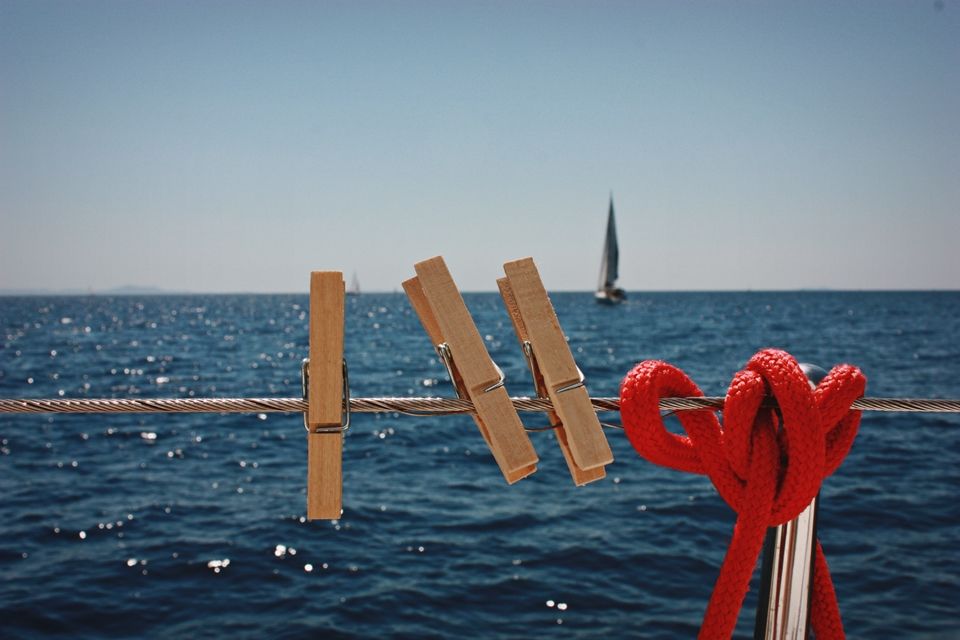Plastic pollution is a worldwide issue, but it seems this is a topic that has still escaped the media in Croatia.
Yesterday I had a local write me that they saw a bunch of balloons in the port of Split, having blown off of a large Club Med cruiser into the water. They were understandably upset. Balloons take years to decompose, if at all. There is a myth around latex balloons or ‘biodegradable’ balloons also, they will decompose but it takes anywhere between 6 months – 4 years, in which time they can cause a lot of damage to animals and wildlife.
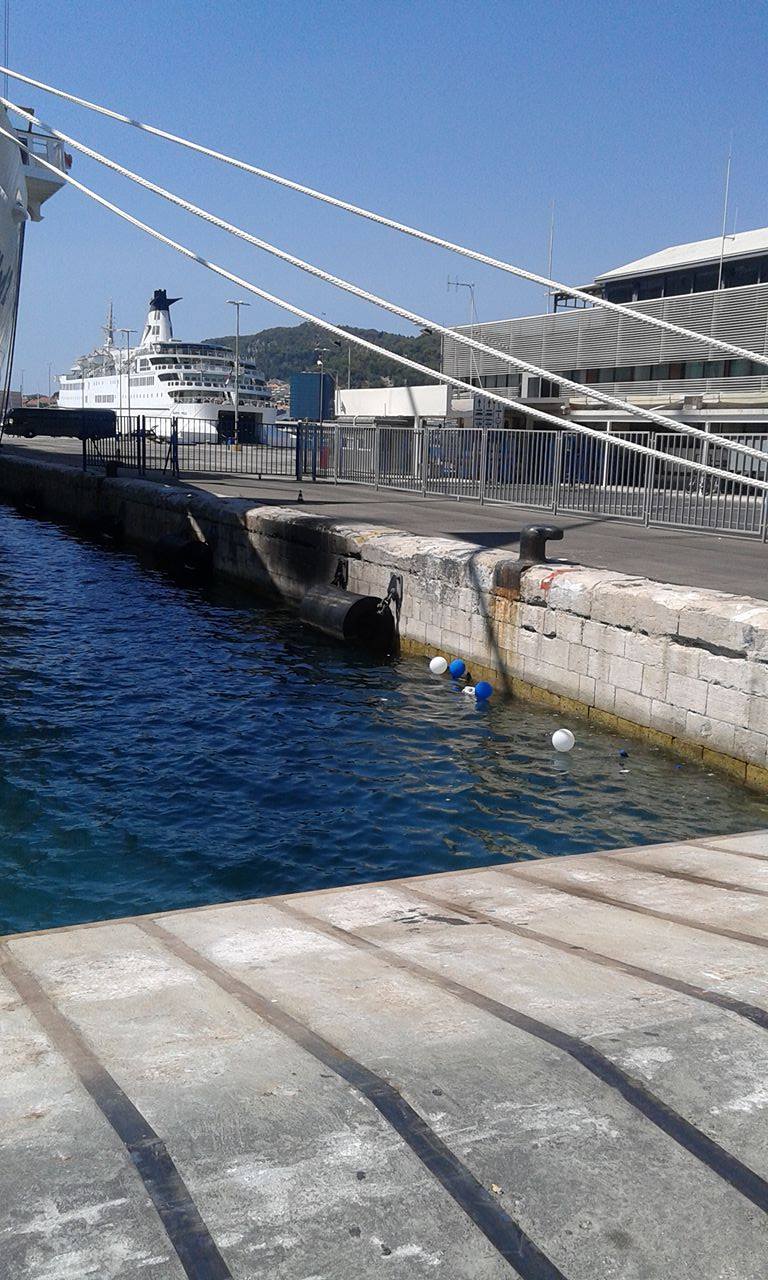
She is writing to Club Med and reporting the incident, but I am curious as to how much can and will be done.
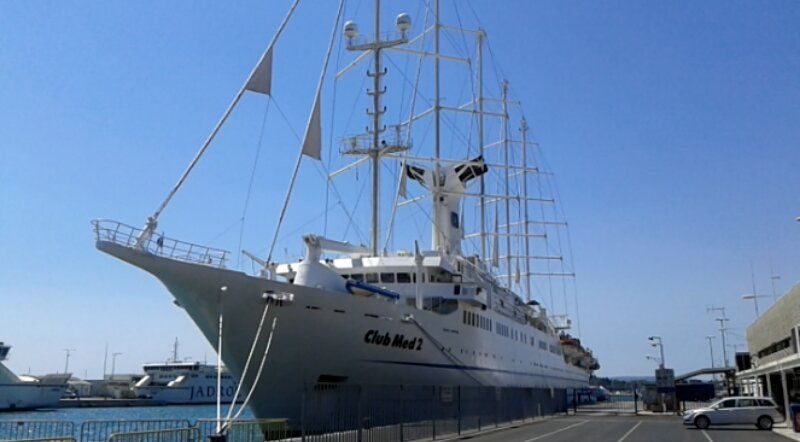
Take a walk along the Riva in Split and stop looking at all the beautiful people for a second and instead peer into the water by the port and especially in ACI Marina Split, you will see a sea littered with plastic debris.
But this isn’t to point the finger at Split. After five years sailing the Adriatic, last year was the worst I ever saw it. You couldn’t sail one hundred metres without spotting at least one plastic bottle bobbing in the Adriatic.
Everywhere we anchored, myself and my husband would make a point of cleaning the nearby bay of plastic. What did we find? Anything you can think of – plastic caps, bottles, plastic wrapping, straws, thongs, polystyrene boxes (or remnants of them), flip flops, plastic pegs, and these were just the larger items that we could identify; a lot of it was broken down to tiny fragments, like a colourful collage – except there was nothing beautiful about it.
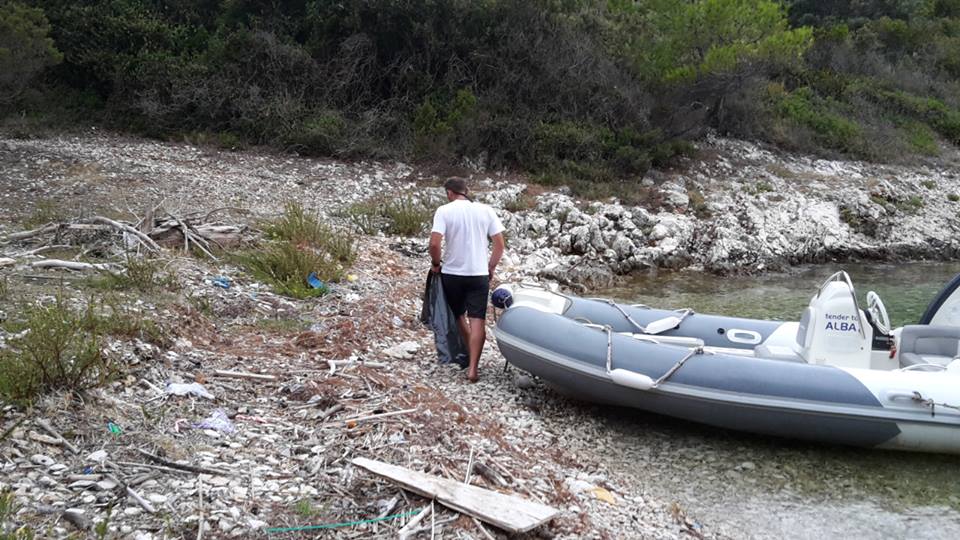
Recently, I saw another post from a friend and sailor in Croatia:
“After sailing around and looking into the deep blue Adriatic for the past few years, I have come to a very sad conclusion. There is a constant problem with depth sounders misreading on every boat I have been on – large and small. If you look into the sea as you glide along all you see at depths of 2 – 3 metres is plastic bags and pieces of plastic, a whole layer in the sea. I think depth metres are picking up echoes from this plastic and giving false readings. It is less so on windy, wavy days when the sea is churned up. I wonder if we should invent a fine net system where leisure yachts can sail along and collect the plastic as they have a holiday. Each marina could have a weigh-in point and a weekly prize could be given to the yacht that picks up the most.”
While his musings are not confirmed and I do love his idea of all leisure yachts doing their part to clean up the sea, the fact that more and more sailors are realising just how much plastic pollution is in the sea is worrying. And yet… no one is talking about it, well there are musings and comments from one person to another, but no recognition or media attention has been given to this subject in Croatia.

Local Yacht Crews doing their part to clean the sea.
Plastic pollution is a worldwide issue, something that the majority of countries are starting to address, but knowing how things work in Croatia, I believe most here would rather turn a blind eye. And I know this in a very direct manner – when I started posting ‘clean-up’ pics and started Take 10, I had a charter agent, absolutely abuse me for it, saying how dare I portray an image that Croatia isn’t clean?! Which blows my mind because this is her livelihood, it is the livelihood of most everyone on the Dalmatian coast – if the sea is not taken care of, there will be no tourism and definitely no nautical tourism in the near future.
For a country so proud of its sea, I have never seen such a blasé attitude (from the majority that is). Go to any café on the beach and you will be given a tiny, plastic spoon. Why? I asked a number of cafes lately and the answer was the same – it is cheap and easy. Plastic takeaway cups and plates, plastic bags for everything – even when you get something from the bakery which already comes in a paper bag… just like the rest of the world, Croatia is most definitely a plastic society.
Someone asked me, how does so much plastic end up in the sea? Well, I am no expert and this issue is larger than a simple answer, but it gets there in a number of ways; from waterways and currents, the wind carrying plastic from land to sea or even from boats, to the worst of all – people intentionally dumping rubbish in the sea. Yes, this happens. Last year we were anchored in a small bay with only one other boat, it was a calm night, the water was like a mirror; in the morning we woke up to find two large black rubbish bags filled with trash bobbing in the water between our yacht and their boat. We fished it out and it was filled with typical waste from a boat – food scraps, bottles, plastic bottles etc.
I was fuming, I wanted to throw it back on their boat! It was a small wooden ship, with a Croatian flag (before anyone tries to blame foreigners) and they had no tender, so clearly struggled to get ashore to dispose of trash appropriately. Unfortunately, we had no direct proof that it was them, so we just did our best to clean it up and moved on.
We recently published the reports of water-bathing quality around Croatia being excellent in more than 95% of locations. Which is amazing news and I am thrilled to be able to share that, but can we really only speak of the positive? Croatia does have incredible water, I am constantly mesmerised by the colours and clarity.
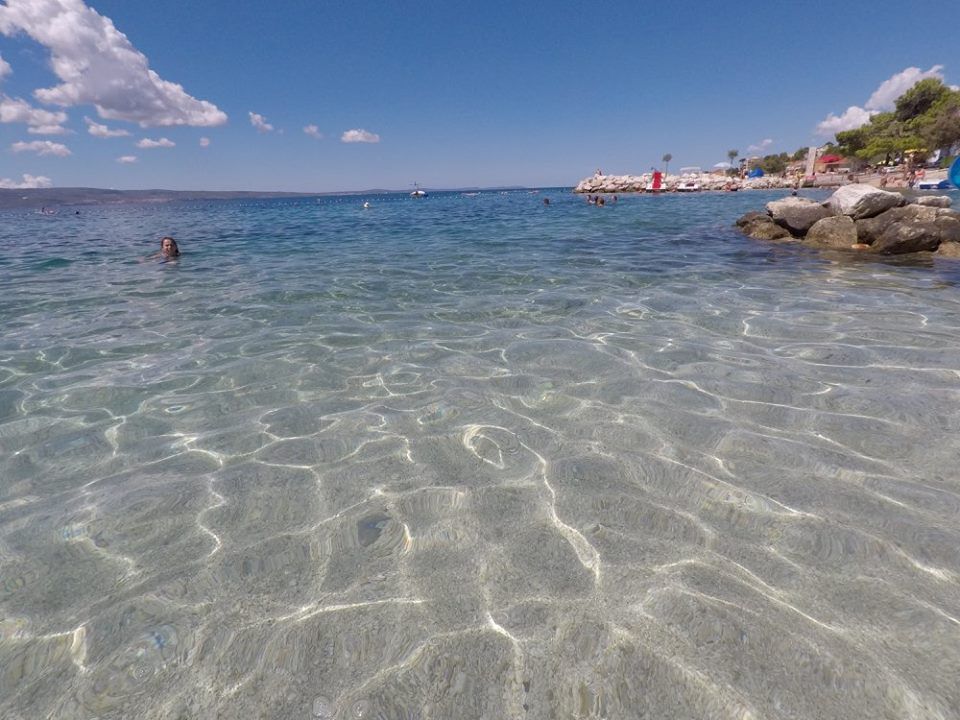
Crystal clear water in Dugi Rat.
However, all waterways are connected, plastic pollution is here in Croatia and it is only going to get worse if nothing is done about it. A lot of peoples' response to this, is - 'well, it is still cleaner here than a lot of other places in the world' (the classic deflection technique). True. But not the point. It won't remain this way if we don't start acknowledging and taking action now.
If sailing or holidaying in Croatia be conscious of your purchases, choose fruit from the markets, rather than plastic wrapped from the supermarkets, ask for your drink without a straw in cafés and bars, use reusable bags, opt for natural products… there is so much more we can all be doing.
I intend on living in Croatia for many more years to come and I want my children to love and enjoy the Adriatic just as much as I do.
So, plastic debris in the sea – whose responsibility? All of ours.
Let’s do our part, let’s start raising this issue, let’s have the conversations, let’s stop people if we see something wrong, let’s take action.

